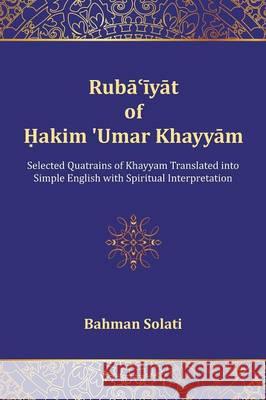Ruba'iyat of Hakim 'Umar Khayyam: Selected Quatrains of Khayyam Translated into Simple English with Spiritual Interpretation » książka
Ruba'iyat of Hakim 'Umar Khayyam: Selected Quatrains of Khayyam Translated into Simple English with Spiritual Interpretation
ISBN-13: 9781627340335 / Angielski / Miękka / 2015 / 110 str.
Ruba'iyat of Hakim 'Umar Khayyam: Selected Quatrains of Khayyam Translated into Simple English with Spiritual Interpretation
ISBN-13: 9781627340335 / Angielski / Miękka / 2015 / 110 str.
(netto: 105,21 VAT: 5%)
Najniższa cena z 30 dni: 110,47
ok. 16-18 dni roboczych
Dostawa w 2026 r.
Darmowa dostawa!
It is often said, quite appropriately, that Khayy m was the poet of fate. It would be a mistake, however, to call him a fatalist, at least according to our common understanding of this word. Scholars seeking to categorize his Rub y t can themselves be grouped into two major schools of thought. The first claims that he was highly influenced by Islamic mysticism, particularly Sufism, and that his references to wine and lovers are allegorical representations of mystical wine and divine love. A second school of thought rejects this view, claiming that Khayy m's references to wine and lovers are very literal and sensual."
It is often said, quite appropriately, that Khayyam was the poet of fate. It would be a mistake, however, to call him a fatalist, at least according to our common understanding of this word. Scholars seeking to categorize his Ruba?iyat can themselves be grouped into two major schools of thought. The first claims that he was highly influenced by Islamic mysticism, particularly Sufism, and that his references to wine and lovers are allegorical representations of mystical wine and divine love. A second school of thought rejects this view, claiming that Khayyams references to wine and lovers are very literal and sensual.











